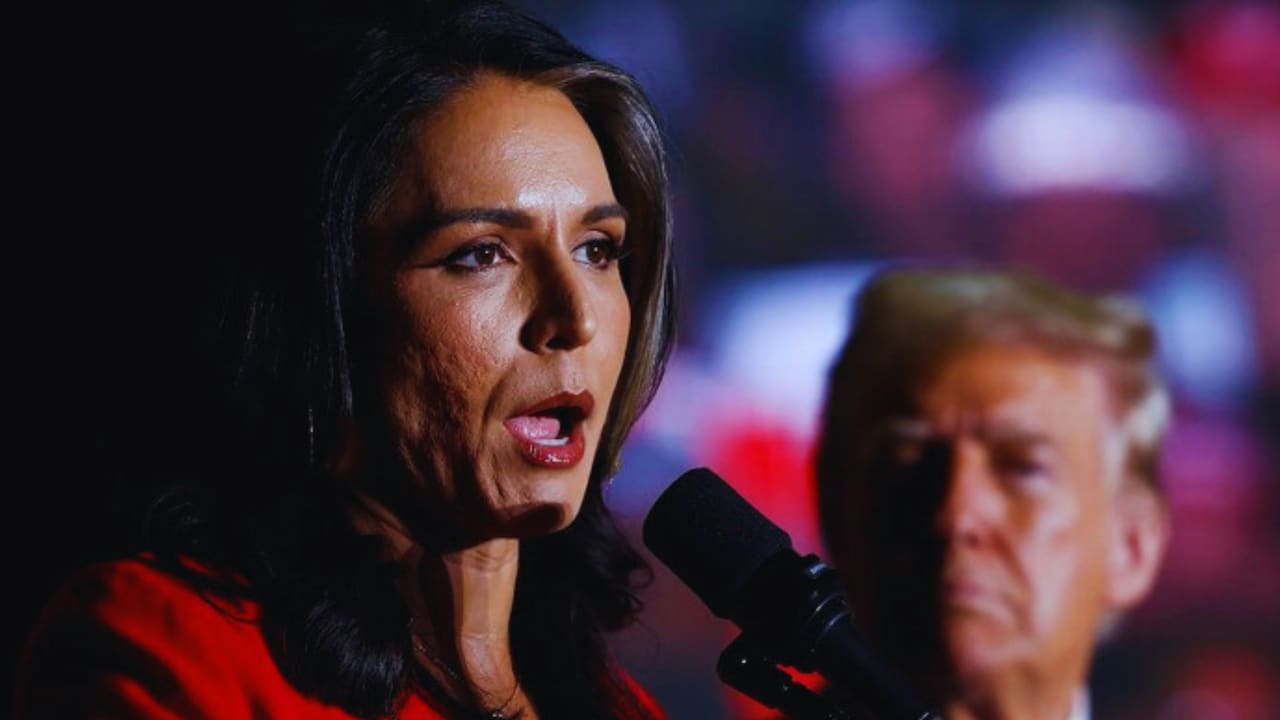Trump’s DNI Pick Sparks National Security Concerns: Intelligence Veterans Warn of ‘Extraordinary Dangers’
President-elect Donald Trump’s nomination of former Rep. Tulsi Gabbard as Director of National Intelligence (DNI) has shocked the intelligence community and sparked sharp criticism from both intelligence veterans and lawmakers. The controversial pick has ignited a fierce debate about national security implications and intelligence integrity.
A Critical Response from the Intelligence Community
Concerns are being raised by both current and former intelligence officials due to Gabbard’s perceived lack of intelligence experience and her history of making statements that align with Russian interests.
A current intelligence official, speaking on condition of anonymity, stated that “Gabbard’s history of irresponsibly promoting misinformation and comforting some of America’s most aggressive adversaries is counter to the values of the intelligence community.”
The role of DNI is crucial, as:
- Coordinates intelligence efforts across the entire government
- Builds intelligence-sharing relationships with other countries
- It shapes the public and White House understanding of threats.
- Oversees the president’s daily intelligence briefing
Concerns over international relations
Intelligence veterans warn that Gabbard’s appointment could seriously damage relationships with U.S. allies. A former senior intelligence official emphasized that many partner nations are already wary following Trump’s first term, particularly after incidents such as the 2018 withdrawal from Syria, which led to the resignation of then-Defense Secretary James Mattis.
Controversial Past Statements
Gabbard’s public record has raised significant red flags among national security experts:
- Ukraine Conflict: In 2022, she echoed Russian President Vladimir Putin’s justification for the invasion of Ukraine, blaming the U.S. for the conflict.
- Syria Relations: Her 2017 meeting with Syrian leader Bashar Al-Assad, and her subsequent refusal to acknowledge his war crimes, have drawn criticism.
- Russian Alignment: Rep. Debbie Wasserman Schultz (D-Fla.) went as far as calling Gabbard “likely a Russian asset” in a recent MSNBC interview.
Professional Concerns
Intelligence professionals have highlighted several key issues:
- Trust Building: The nominee faces significant challenges in earning trust from both international partners and U.S. intelligence staff.
- Analysis Integrity: Concerns exist about potential political influence on intelligence assessments.
- Security Clearance: CNN reports that the Trump administration has chosen to bypass traditional FBI vetting for top nominees, including Gabbard.
Former CIA officer and Rep. Abigail Spanberger (D-Va.) emphasized the severity of the situation: “The idea that someone who has aligned herself with and defended Vladimir Putin could potentially have information related to the sources and methods of how we knew Russia was going to invade Ukraine… helps illuminate why this is so extraordinarily dangerous.”
Looking Ahead
The nomination comes at a critical time for U.S. intelligence operations. The DNI role has become increasingly important in recent years, particularly in coordinating responses to international threats and managing relationships with allies.
The decision to nominate Gabbard has raised fundamental questions about the future of American intelligence operations and their independence from political influence.
Intelligence community veterans stress that the role requires someone who can maintain the delicate balance between political leadership and intelligence integrity.
One current intelligence official noted, “We conduct intelligence in the service of the nation, without regard for political parties or motives… Will she champion the professionalism and apolitical nature of what we gather and assess, or will she disregard our work to convey what power wants to hear?”
The confirmation process is expected to face significant scrutiny from both sides of the aisle as lawmakers weigh these concerns against Gabbard’s qualifications and past statements.
